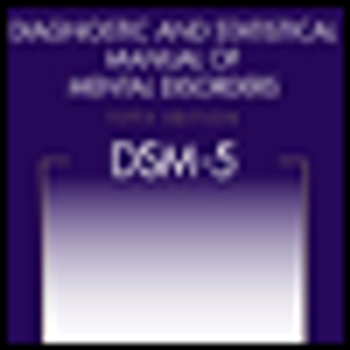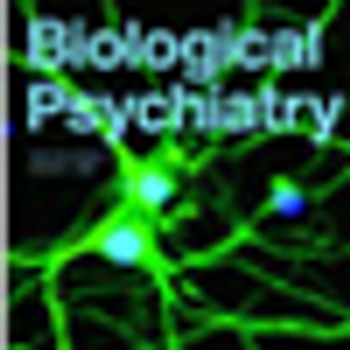
So far, opposition to DSM-5 has been expressed by at least 11 organizations.

So far, opposition to DSM-5 has been expressed by at least 11 organizations.

The petition to reform DSM-5 continues to gain momentum. In its first full week, more than 2300 people have already expressed their disapproval of the DSM-5 proposals and their desire to see dramatic changes. And the numbers are growing each day.

A new CDC study based on a large survey of the general population reveals the following alarming results.

Just a few days ago, 3 divisions of the American Psychological Association posted a well crafted open letter spelling out the many risks posed by DSM-5 and inviting mental health professionals to sign a petition requesting much needed changes. You can see the letter and (if you agree with it) sign the petition at http://www.ipetitions.com/petition/dsm5/

Several divisions of the American Psychological Association have just written an open letter highly critical of DSM-5.They are inviting mental health professionals and mental health organizations to sign a petition addressed to the DSM-5 Task Force of the American Psychiatric Association. You can read the letter and sign up at http://www.ipetitions.com/petition/dsm5/. It is an extremely detailed, thoughtful, and well written statement that deserves your attention and support.

Despite its caveats and good intentions, the AAP guideline will surely invite an inappropriate glut of medication for preschoolers . . .

A recent front page story by Shari Roan in the Los Angeles Times explores the heated controversy over the DSM-5 proposal to include a Disruptive Mood Dysregulation Disorder (DMDD) in DSM-5. I very much oppose the inclusion of this new "disorder."

Below is an editorial (with the above title) taken from the newsletter of the Society of Biological Psychiatry and written by its editor Stephen M. Strakowski MD.

The misdiagnosis of rape as a mental disorder has been a forensic disaster-allowing the widespread misuse of involuntary psychiatric hospitalization to facilitate a form of questionably constitutional preventive detention. Fortunately, there is now considerable hope that this sad episode will soon come to a much needed end.

I have previously framed a series of questions inviting Professor McGorry to state clearly his current positions on: the accuracy and suitability of attempting to predict psychosis; the types of preventive interventions that he believes are indicated and those (perhaps antipsychotics) that clearly are not . . .

In preparing DSM-IV, we worked hard to avoid causing confusion in forensic settings. Realizing that lawyers read documents in their own special way, we had a panel of forensic psychiatrists go over every word to reduce the risks that DSM IV could be misused in the courts.

The DSM-5 attempt to “dimensionalize” the diagnosis of personality disorder has worthy goals, but has suffered from grievously incompetent implementation.

I recently experienced the odd coincidence of receiving 2 separate emails on the same morning each asking almost the very same question. . . how can I remain so high on psychiatry while at the same time being so critical of some of its recent trends and so fearful of the likely future harmful impact of DSM-5?

The entire field of psychiatric epidemiology has a systematic bias that leads it to misleadingly report what are highly inflated rates of psychiatric disorder.

A newly appointed DSM-5 scientific review group is meant to “review the reviews”-but it is working in secret and so far appears to be a remarkably porous filter . . .DSM-5 has shown no capacity to self-monitor and self-correct. An outside review is sorely needed-and fortunately a ready mechanism is in place.

I just read a blog by Dr Dayle Jones that could have an important influence in the endgame effort to save DSM-5 from itself.

Psychiatric symptoms are fairly ubiquitous in the general population- most normal people have at least one, many have a few. When present in isolation, a single symptom (or even a few) does not a psychiatric disorder make. Two additional conditions must also be met before a symptom can be considered to be part of a mental disorder.

Psychosis Risk (AKA attenuated psychotic symptoms disorder) has always had 3 strikes against it.

A dark cloud surrounds the silver lining of having one psychiatrist in a position of almost unopposed influence . . .

Bob Spitzer was prophetic 4 years ago when he warned that the closed DSM-5 process would lead to a flawed DSM-5 product. He advised the DSM-5 leadership to end its secrecy-- that a lack of openness would inevitably would lead to bad decisions not amenable to self-correction.

I never would have entered the DSM-5 controversy were it not for two of its proposals that risk furthering the already frightening overuse of antipsychotic medication, particularly in children and teenagers.

Polypharmacy has become so ubiquitous that more accidental overdoses are now caused by prescription drugs than by street drugs. The question naturally arises whether this almost routine use of multiple psychotropic medications make sense?

Martin Whiteley is an MP who represents Perth in the Australian parliament. He has been actively involved in mental health issues and succeeded in a crusade to curb what had been Perth's alarming overdiagnosis and overmedication of Attention Deficit Disorder (ADD).

The British Psychological Society is a highly esteemed organization representing 50,000 members. Recently, it released an open letter to the American Psychiatric Association offering a harshly critical view of DSM-5.

The DSM-5 Scientific Review Group was the last hope for an eleventh hour DSM-5 save. This hope recently died.

Those of you who have been following the SVP controversy know that "Paraphilia NOS, nonconsent" (PNOS) is a fake diagnosis that is losing traction as justification for committing rapists to psychiatric hospitals.

During the past year, I have been involved as an expert witness for the defense in 14 SVP cases (tried in California, Washington, and Iowa). My role has been to clarify what is meant by the wording of the Paraphilia section in DSM-IV. And it certainly does badly need explaining.

Dr McGorry’s promotion of primary prevention has been well-intended but is clearly premature and carries with it considerable risks of harmful unintended consequences.

Humans have just these 2 ways of sorting things--giving them a name or a giving them a number. We have been naming things since the days of Adam.

Marsha Linehan is the creator of Dialectical Behavior Therapy (DBT)-the best available method for helping self destructive people help themselves. I have never been more admiring of her than I am at this moment.